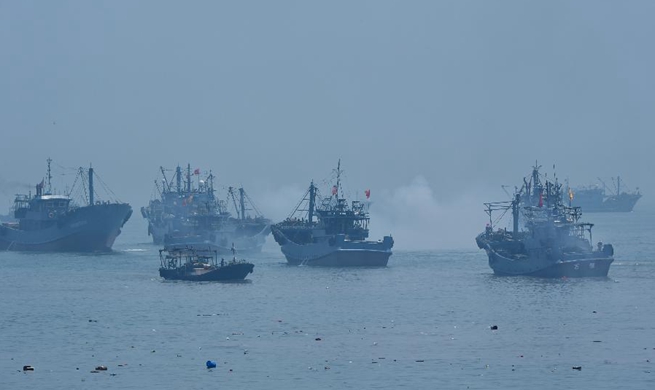RIGA, Aug. 1 (Xinhua) -- Roughly 4.5 million euros worth of high-risk money has been frozen in bank accounts as the Latvian banking sector is rushing to get rid of suspicious nonresident clients to meet anti-money laundering and counter-terrorist financing rules, the national banking regulator informed Wednesday.
The share of deposits made by the so-called shell corporations has now dwindled to 0.03 percent of the total amount of deposits held by the Latvian banks, according to the latest data released by the Financial and Capital Markets Commission (FCMC).
The regulator said that in recent months the banks had severed ties with some 9,000 shell corporations they used to count as their clients.
This has resulted in an outflow of roughly 1.5 billion euros from the Baltic country's banking system, while approximately 4.5 million euros remain frozen in bank accounts as the origin of this money has yet to be examined, said FCMC head Peters Putnins.
At the end of July, resident money dominated in the structure of Latvian bank deposits, accounting for 79 percent of their total amount, while nonresident deposits made up 21 percent.
Latvian authorities have been taking resolute measures lately to clean up the national banking sector after the country's third largest bank by assets, ABLV Bank, had to cease operations in February following a damning report by the Financial Crimes Enforcement Network (FinCEN) of the U.S. Department of the Treasury, which accused the Latvian bank of involvement in money-laundering schemes and bribing Latvian officials.













